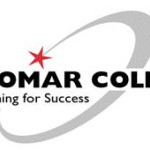- Industria: Education
- Number of terms: 12355
- Number of blossaries: 0
- Company Profile:
Founded in 1946, Palomar College is a public two-year community college in the city of San Marcos, located in north San Diego County, California. Palomar offers over 300 associate degree, certificate programs and is designated by the U.S. Department of Education as an Hispanic-Serving Institution ...
The original name given to the Homo erectus skeletal remains from the limestone cave site at Zhoukoudian near Beijing, China. Sinanthropus pekinensis literally means "Chinese man from Peking" or Beijing.
Industry:Anthropology
The relatively clear liquid medium in blood which carries the red cells, white cells, and platelets. Most of blood's volume is made up of plasma. As the heart pumps blood to cells throughout the body, the plasma brings them nourishment and removes the waste products of metabolism. Plasma also contains salts, sugars, lipids, amino acids, hormones, and blood clotting substances.
Industry:Anthropology
The relative dating of early human sites by association with index fossils uncovered in the same strata as human evidence. The assumption is that both the people and the species that is now an index fossil must have lived at about the same time.
Industry:Anthropology
The reduction in viability and subsequent loss of reproductive potential of purebred varieties. This is a consequence of a pattern of consanguineous mating that goes on for many generations in a family line or a small inbred population.
Industry:Anthropology
The quantity of each type of tooth (e.g., incisor, canine, premolar, and molar) in each quadrant of the mouth, counting from the front. The human dental formula is 2. 1. 2. 3. The Old World monkeys and apes also share this dental formula.
Industry:Anthropology
The process that occurs during the rest period (interphase) at the outset of mitosis and meiosis by which a DNA molecule is duplicated or copied. One DNA molecule becomes two identical ones. This is accomplished by the DNA molecule unwinding and unzipping along its base pairs so that both sides can be copied by free nucleotides. Replication is triggered by an enzyme.
Industry:Anthropology
The process of removing a tissue sample from a living organism for diagnostic examination (e.g., chorionic villi sampling).
Industry:Anthropology
The process by which populations of organisms respond to long term environmental stresses by permanent genetic change--i.e., by evolving. See adjustment.
Industry:Anthropology
The process by which plants, algae, and some bacteria use energy from sun light to create new organic molecules (specifically carbohydrates) out of carbon dioxide, water, and elemental nutrients in specialized chlorophyll-containing cells. Most forms of photosynthesis produce oxygen as a byproduct.
Industry:Anthropology
The process by which individual organisms respond to environmental stresses during their lifetime without changing genetically. Adjustments are generally not inheritable. Acclimatization and developmental adjustment are examples of adjustment. See adaptation.
Industry:Anthropology
